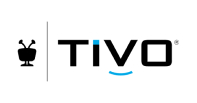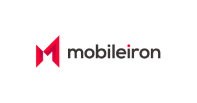Sign your Software/App Codes digitally with most trusted Brands and become a Verified Publisher.
Code Signing Certificates
Buy Code Signing and Sign Your Applications & Software Programs Digitally
The biggest threat to any software developer or software publisher is a “Unknown Publisher” warning message; No one likes to download software that throws warning messages. A software that is digitally signed by a code signing certificate will securely allow the users to download it and will increase the conversion rate of your application. These certificates are widely popular and require at least 3072-bit key length according to the latest CA/Browser Forum code-signing baseline requirement. Moreover, for uninterrupted execution, these certificates also offer timestamp functionality.
No matter whether you are an individual, a small, or a big business; there is a best code signing certificate for everyone. Pick from our various listings of code signing certificates and start signing your codes.

Certera Code Signing
- 3072-bit Signature Key
- SHA-2 Encryption
- Secure App & Software
- Easy to Install and Use
- Safe Digital Signature
- 1 to 3 Days Issuance
Comodo Code Signing
- Includes timestamp functionality
- 1 to 3 Days Issuance
- Safe Digital Signature
- Secure App & Software
- 3072-bit RSA Signing Key
- Allowed for Individual Developer
Sectigo Code Signing
- Includes timestamp functionality
- Boost Software Integrity
- Safe Digital Signature
- Allowed for Individual Developer
- SHA-2 Encryption
- Secure App & Software
Comodo EV Code Signing
- Includes timestamp functionality
- 3072-bit Signature Key
- Boost MS Smartscreen Score
- USB Token Storage
- 1-5 Business Days
- Unlimited Signing
Sectigo EV Code Signing
- 3072-bit Signature Key
- USB Token Storage
- Boost MS Smartscreen Score
- Support All Platforms
- 1-5 Busines Days
- SHA-2 Encryption
Certera EV Code Signing
- 3072-bit Signature Key
- Secure Multiple App & Software
- Extended Validation
- Token-based Private Key
- Improve MS Smartscreen Score
- 1 to 5 Days Issuance
Azure Key Vault Code Signing Certificate
- Secure Your Software in Cloud
- Organization Validation
- Trusted Code Signing from DigiCert
- No Physical Token or HSM Needed
- Allowed for Individual Developer
- Cloud-Based HSM for Secure Storage
Digicert Code Signing
- 3072-bit Signature Key
- Secure Multiple App & Software
- Organization Validation
- Token-based Private Key
- Removes Unknown Publisher Warnings
- 1 to 5 Days Issuance
Digicert EV Code Signing
- 3072-bit Signature Key
- Secure Multiple App & Software
- Extended Validation
- Token-based Private Key
- Improve MS Smartscreen Score
- 1 to 5 Days Issuance
Azure Key Vault EV Code Signing Certificate
- Secure Your Software in Cloud
- Extended Validation
- Trusted Code Signing from DigiCert
- No Physical Token or HSM Needed
- Highest Level Validation & Security
- Cloud-Based HSM for Secure Storage
Code Signing Certificate is available in All Validation Types
Our Code Signing Digital IDs are available in three validation levels. IV (Individual Validated), OV (Organization Validated), and EV (Extended Validated)
IV (Individual Validated) Code Signing
An IV code signing certificate is basically for individual developers who do not have a legally registered company and still want to sign the certificate to gain trust among their users. The vetting process is done on an individual level, for example, the certificate authority will validate the identity of the individual person applying for the certificate by reviewing their government-issued document such as a Driver’s License or passport, etc. After the verification, the certificate will be issued under the verified individual’s name.
Learn MoreOV (Organization Validated) Code Signing
Certificate Authority will verify your legal business before issuing an OV code signing certificate. This validation process will include the address and phone number verification of your organization from any of the trusted online third-party databases and a verification phone call will be done on the registered phone number of your organization. Additionally, a photo ID verification of the individual applying for the certificate is needed. After completion of this verification, the certificate will be issued under the legal organization’s name.
Learn MoreEV (Extended Validated) Code Signing
This is the most extensive code signing certificate and provides the highest level of assurance. The validation process is very rigorous and involves many steps to ensure that your business is operating with integrity. Some of these steps are verifying the legal registration of your organization with the government, verification of the address and phone number on a trusted third-party online database, verification call will be made on the registered phone number, and verification of the employment of the certificate requester.
Learn MoreCode Signing Certificates Benefits
 Reveal Your True Identity and Stay Clear of Impersonator
Reveal Your True Identity and Stay Clear of Impersonator
The CA (Certificate Authority) that issues a code signing certificate will thoroughly verify the identity of the individual or the organization that has applied for the certificate so that there is no identity theft. For example, if you have applied for an individual certificate, the CA will verify your individual identity and after the verification is done the certificate will be issued under your name. Likewise, if you want a code signing certificate for your organization, then the CA will examine your business details and will issue the certificate under the verified company name only. This will let your users identify the author of the code.
 Get Rid of Microsoft SmartScreen Warnings
Get Rid of Microsoft SmartScreen Warnings
A Microsoft SmartScreen will warn a user if the application is trusted or not; the users will however have the option to ignore the message and proceed with the download at their risk. As a result of this, many users do not feel safe downloading such applications or software programs, which will directly affect the success of the application. A standard code signing certificate will not remove this error instantly; In fact, your code will have to build a reputation to make the error message go. An instant solution to this is using an EV code signing certificate. The EV code signing certificate is the highest level of security that a code signing can offer and hence it can remove the Microsoft SmartScreen warning message.
 Issued By Industry-Wide Trusted Certificate Authority
Issued By Industry-Wide Trusted Certificate Authority
These Digital certificates are issued by a globally reliable CA (Certificate Authority) and are accepted by major Operating Systems such as Windows, iOS and macOS.
 All Major 32-Bit Or 64-Bit Executables Are Supported
All Major 32-Bit Or 64-Bit Executables Are Supported
The Code Signing Certificates from Comodo, Sectigo and Certera are compatible with all the important 32-Bit/64-Bit formats. For example, Microsoft Authenticode such as kernel and user mode files, like .cab, .dll, .exe, .ocx, .xpi, .msi, and .xap
Platform Compatibility of Code Signing Certificate
Below are the platforms that are compatible with your Code signing certificate:
Microsoft Authenticode Signing
Microsoft Windows 7, 8 & 10
VBA Apps & MS office Macro files
Adobe Air applications
Java Applets & Java applications
Microsoft Office
Mozilla Object Files
Microsoft Silverlight Applications
What is FIPS 140-2 Level Hardware Token in Code Signing?
Federal Information Processing Standards (FIPS) 140-2 level is the standard for the security of confidential data in networks operated by the federal government. It serves as the standard for analyzing the efficiency of cryptographic hardware.
Per CA/B forum regulation changes for Code Signing Certificate, customers should generate and store the private key on FIPS 140-2 (or higher level) compliance hardware tokens. You can obtain the FIPS 140 Level 2 token from Certificate Authority by paying additional charges, or you can use your own FIPS 140-2 compliance token to generate CSR and private key.

What Is a Hardware Security Module (HSM) in Code Signing?
To store and utilize cryptographic keys securely, specialized computing devices called hardware security modules (HSMs) were developed.Hardware Security Modules (usually referred to as HSM) are tamper-resistant, hardened hardware components that enhance encryption techniques by creating keys, encoding and decrypting data, as well as producing and validating digital signatures. Many FIPS 140-2 Levels of certification are available for certain hardware security modules. In several instances, hardware security modules are used to:
- Fulfilling and exceeding current and future regulatory requirements for cybersecurity
- Strengthen data privacy/security and trust levels.
- keep excellent standards of service and company flexibility.
Employing Hardware Security Module (HSM) is essential for organizations to protect the private keys needed for code signing securely. It provides secure storage and management of digital keys and sensitive data. HSMs use true random number generators to generate unique cryptography keys and securely store and manage their lifecycle, adhering to industry standards.
The Key Advantages of Hardware Security Module (HSM) in Code Signing Process
- Secure key management and advanced cryptographic techniques for protecting sensitive data and transactions.
- improved accessibility and dependability
- reliable and secure administrative controls for the access
- Elliptic curve cryptography support
- Flexibility and efficiency
Why is HSM (Hardware Security Module) required in Code Signing Security?
One advantage of implementing an HSM (Hardware Security Module) over an ordinary web server is that it offers quite greater privacy key storage. Organizations that build and run multiple applications on their web servers are vulnerable to being attacked by hackers. HSMs for code signing eliminate the risk of third-party attacks from using forged code signatures to hide infected code.
These devices are used by public certificate authorities and registration authorities to generate, store, and maintain their private keypairs. Moreover, organizations use and store HSMs using private PKIs to authenticate documents, code for software, and PKI certificates.
By adding a strong layer of protection by using an HSM to secure cryptographic keys, you can efficiently restrict attackers from detecting them. HSM-based code signing aims to provide a center of trust by handling and preserving cryptographic processes and keys in a certified and verified hardware environment.
Frequently Asked Questions
Have Questions? We're here to help.
How to use YubiKey for authentication?
YubiKey is a hardware authentication device that can be used for two-factor authentication. To use a YubiKey for authentication, you generally need to:
- Get a YubiKey: There are many different models, but the most common is the YubiKey NEO and YubiKey 5.
- Register the YubiKey with the service you want to use it for; this involves "enrolling" the YubiKey by inserting it into a USB port and following the enrollment process on the website.
- Configure two-factor authentication for your account, which usually involves entering a password and tapping or inserting the YubiKey when prompted.
- Use the YubiKey whenever you log in to that service. After entering your password, the service will prompt you to tap or insert the YubiKey to authenticate, which later generates a one-time code that verifies your identity.
What is a YubiKey code?
The "YubiKey code" refers to the one-time code that is generated when you tap or insert your YubiKey into a USB port.
When you enroll your YubiKey with a service, part of the enrollment process is "registering" that specific YubiKey with that service. This means the service stores some information that uniquely identifies your YubiKey.
Then, when you insert or tap your YubiKey during login, it generates a one-time code that consists of:
- A static identifier: This is a unique ID hardcoded into your specific YubiKey that identifies it.
- A dynamic value: This value changes with every tap or insert. It could be a timestamp, counter, or random number.
What is Token signing?
Token signing is a type of two-factor authentication where a unique token is generated for a user and then cryptographically signed with a private key. This signed token is sent to the user, who then presents it back to authenticate themselves. The token itself has no value without being signed, so when the user presents the signed token, the server can decrypt it with the corresponding public key to verify that it came from a valid token generated for that user, which securely authenticates the user without needing passwords.
Token signing is a technique used to securely authenticate users. It works by:
- Generating a unique token for a user
- Signing that token with a private key
- Sending the signed token to the user
- The user then sends the signed token back to authenticate themselves
What is FIPS 140-2 Level?
FIPS 140-2 Level is a security standard published by the National Institute of Standards and Technology (NIST). It specifies security requirements for cryptographic modules. Cryptographic modules include things like hardware security modules, smart cards, and software modules that perform cryptographic functions. FIPS 140-2 establishes four increasing, qualitative levels of security (Level 1 to Level 4) for cryptographic modules. The higher the level, the more stringent the security requirements.
Who Requires FIPS 140-2 Level Token?
As per the new CA/B forum regulations, the FIPS 140-2 or higher Token is mandatory for all OV Code Signing users for generating CSR and Private Key to validate their authorization. Software Developers, Government Agencies, Financial Organizations, Cloud Service Providers, and Healthcare Organizations, now require the FIPS 140-2 Tokens to sign their Software Code using the code signing certificates.


Talk to our 24/7 SSL, Code Signing, & Email Signing experts to resolve issues regarding issuance, validation, & installation.
Live ChatConnect with our support experts via call or support ticket for Validation, or sales queries.
Submit TicketSSL/TLS Certificate Trusted Brands
Trusted by leading brands Globally
Securing some of the World's
Largest & Best Known Brands








Real customer ratings and reviews at
I was looking for a wildcard SSL very cheap and i found you guys, and so happy and satisfied with you services.
Thanks for your great service with very very low cost.
Great customer service fast and getting done today!